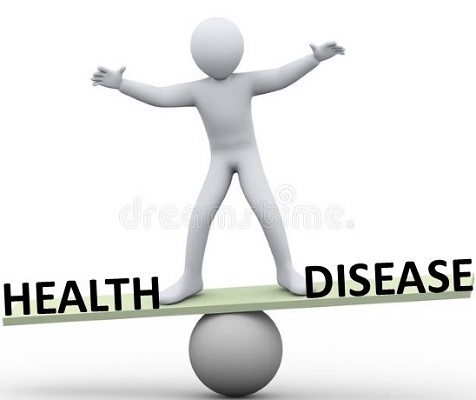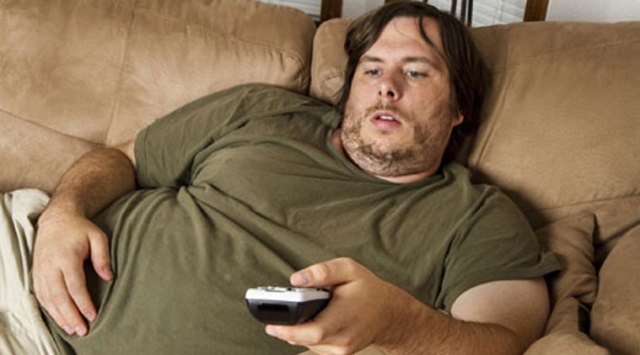Health and Disease (as it relates to the Human behavioral component) is based on the premise of
“THE TIPPING POINT.”
Whether we choose to proactively participate in a plan of action designed to improve our chances to avoid disease and dysfunction or choose to passively rely on an event in life (ex. diagnosis of adult onset diabetes or cancer) to produce a definitive tangible need for change, each participant chooses their respective path at THE TIPPING POINT.
The proactive participant seeks information for personal use to better incorporate beneficial lifestyle choices that support healthy outcomes. This information is used effectively to avoid harmful impetuous (emotional) decisions involving products and services designed to mislead the general population through deceptive advertising and marketing.
The passive participant typically requires suffering some degree of compromised health FIRST, before recognizing a need to alter one’s lifestyle. They tend to blind themselves to the various TRUTHS they’re exposed to in favor of accepting the marketer’s and advertiser’s messages. Instant gratification (ex. unhealthy foods) tends to outweigh any harmful realities because their harmful expression (in the form of disease or dysfunction) is commonly delayed over months or years.
.
In simple terms, the PROACTIVE participant seeks
PLEASURE
as THE TIPPING POINT; a “pleasurable” desire to gain SELF CONTROL over behavior to increase chances for greater health and opportunities in life. Pleasure, therefore, becomes the source of MOTIVATION.
.
Those choosing to rely on a passive approach to health rely on
PAIN
as their TIPPING POINT; a negative and/or harmful outcome (commonly avoidable) producing the MOTIVATION required to alter one’s approach to lifestyle choices. Interestingly, as “PAIN” (in the form of a compromised health diagnosis, ex. high cholesterol) is reduced (often with the use of pharmaceutical prescriptions,) MOTIVATION to continue following healthier lifestyle choices dissipates. Lab results, achieved with pharmaceutical assistance creates an inaccurate assumption that health has been restored. It is common at this point the individual reverts back to previous patterns of destructive behavior. Until PAIN once again is experienced (typically in the form of a new or recurring diagnosis) the individual will justify their pharmaceutical “needs” as a “normal” event in life. Even though a clear problem exists if lifelong pharmaceutical prescriptions are required to override the normal function of the body, the consumer chooses to ignore this REALITY. As long as the doctor states, “your in good health,” the patient is convinced the prescription(s) will effectively counter the harmful effects of damaging lifestyle choices.
Why then, doesn’t the average person choose PLEASURE over PAIN as their source of MOTIVATION? In my opinion, PLEASURE requires greater personal effort, commitment and value to life. PLEASURE becomes the END RESULT of a proactive healthy lifestyle designed to maximize qualitative living.
It doesn’t, however, satisfy the emotional need for immediate gratification!
The consumer, using a PASSIVE approach to life, uses “PAIN” as a reference source signaling the “need” for outside intervention (ex. a doctor.) Personal effort isn’t required because the doctor is held “responsible” for monitoring and treating the “PAIN” (diagnosis.) It’s viewed as the “easy way out” where, in fact, it typically results in greater and more complicated “PAIN” (additional disease diagnoses and prescription drugs) over time.
The kitchen cabinet replaces the bathroom medicine cabinet as the number of prescriptions increase. It becomes necessary to purchase a pill organizer to accurately comply with daily pharmaceutical requirements. Yet, the consumer continues to deny they’re living in a state of compromised health.

IS THIS THE PICTURE THAT COMES TO MIND WHEN YOU THINK OF “GOOD HEALTH?”
We justify this PAIN along with the growing rate of complications as the result of
“GETTING OLDER”
This helps us rationalize our choice to remain passive as we follow the path of instant gratification. As we accept our doctor’s claim that chronic disease is part of the aging process, THE TIPPING POINT toward accepting PAIN increases. It supports the belief our aging health is outside our control. This, in turn, justifies our choice to satisfy immediate gratification without significant guilt. In fact, the consumer (typically on 6-20+ different prescriptions during their lifetime and living with reduced quality and function) verbalizes the ultimate justification. It sounds something like this:
Hell, we’re all going to die anyway…I may as well enjoy everything I can until that day comes!
Although the sentiment is understandable for those willing to place themselves in this passive role, it must be understood the active participant also wishes to enjoy life to the fullest until that fateful day. The difference is the active participant finds joy and fulfillment in “things” that accentuate one’s quality of life rather than “things” that cause disease, dysfunction and other harmful outcomes.
Until the PASSIVE PARTICIPANT is willing to recognize this reality, much of society will continue to accept a self destructive path convinced a life filled with chronic diseases including:
-
high blood pressure
-
high cholesterol
-
cancer
-
type 2 diabetes
-
obesity
-
autoimmune diseases
-
arthritis
-
chronic fatigue
-
depression
-
gastrointestinal disease
-
…and the list goes on







Your last sentence says it all. In the “good old days” (which turned out not to be so good after all), we were blissfully unaware of the harm we were inflicting on our bodies. Smoking was cool, eating and drinking to excess the norm. Now, in our old age, we are reaping the ill effects. With all the information available and being shouted out by medical experts, we no longer have an excuse to make wrong choices. I changed my lifestyle and got rid of bad habits at a fairly advanced age, and benefited to a great extent, but I sure wish that I had all this knowledge at my fingertips when I was much younger.
LikeLiked by 3 people
You are proof, it’s never too late. Most people do not want to make the effort (and it does take effort) to achieving better outcomes. Most things worthwhile in life require greater effort. If being healthy was easy, a great majority of people would be healthy!
LikeLiked by 1 person
It’s sad that majority of the human population fall into the passive category. These habits are so easy to acquire and so hard to drop. You couldn’t be more accurate about the path of pain being the easy way. I think discipline and sacrifice ( that is dropping bad habits for health) are the main things that we need to inculcate to get a better quality of life. Thank you for sharing.
LikeLiked by 2 people
I completely agree with you. One problem is no one is taught that “being healthy” requires ongoing effort. It takes mental and physical application and a willingness to open one’s eyes and mind to dynamic living. Certainly a challenging concept, but one well rewarded when applied to “real life” living.
LikeLike
On point once again…But a solution needs to be found to encourage people to take a healthier lifestyle all these posts only make the person who is strong-willed and just needs a little push in the right direction to change their lives…What about the other 90%? Incentives are needed on a large scale…Carrot and stick!
LikeLiked by 2 people
Your right, Carol, except that solutions can’t be provided to those choosing to ignore or avoid them. Life requires different degrees of sacrifices. The 90% you mention have to FIRST be willing to accept this fact along with the fact that their current path in life will unlikely achieve the goals they desire. If people can’t accept (1) improved quality of living and (2) greater opportunities in life, I’m not sure I know of a better “carrot” to hold in front of them.
LikeLiked by 1 person
Really interesting post! You’re absolutely right about the pleasure/pain principal
LikeLiked by 2 people
Thank you for reading and commenting. Those willing to honestly evaluate their personal convictions regarding health will likely find this post interesting and pretty darn accurate.
LikeLiked by 1 person
Doc, I was wondering which of your posts I had been planning on leaving a comment on. Here we go, sadly the new chick in my country for the ‘wealthy’, is to live a ‘good life’ affording all you crave and flying abroad for all vacations possible and eat all the latest fasts you can and circulate tons of pictures and hear says and bring back glams, especially the teens— then you’ll hear a few years later complications both physical and mental show up, and for the older ones, they retire abroad living with their families or even get into the system and get into a ‘home’ – the apex being a corpse coming back and the show continues at the airport to receive a glam hearse. In my current practice, I am trying to get both patients and clients to be proactive with minimal if any success. Even reading meds leaflets or thinking of preventive or alternative methods tough one.
LikeLiked by 1 person
It’s challenging to help people when they seem to lack a willingness to help themselves.
When I felt patients were combative in treatment compliance, I would sit down, eye to eye and ask what they wanted from me. I would explain if we approached their situation from opposite sides and resisted each others effort, the outcome would likely be ineffective. If we couldn’t resolve the issue working constructively together, I was probably the wrong person for the job. This often challenged people’s resistance (diplomatically) and achieved better results.
LikeLiked by 1 person
This is exactly my approach. I have a blog lined up on how tough therapy is because there are no pills to prescribe or pop. But I tell them we are either working together or not wasting each other’s time. And guess who needs the other more? no kidding but I could explore other sources of income lol – I can say I am having a 50% engagement which is already a big wow
LikeLiked by 2 people
We never know how many people we truly help in life; we only know how much effort we were willing to apply in achieving a beneficial outcome for those we SERVE.
LikeLike
So sorry true doc. This comment has helped me a lot discern and deal with the fact that I may not necessarily see nor be OK with the results of my service, I just have to keep doing my best. Thank you once more
LikeLiked by 1 person
Reblogged this on SEO.
LikeLiked by 1 person
Thank you for sharing this information with your readers.
LikeLike
nice blog post. the content is very iformatic and yes you are right for the pain principle
LikeLike
Most people are reactive. Meaning waiting for a tragedy before making healthier choices.
Illness comes from the absence of good nutrients and the presence of bad chemicals in the body. My belief is that we all have the power to heal with the proper nutrients. I always advice adding superfoods and detox to your routine.
LikeLike
Another interesting and helpful article Dr. Jonathan, thank you!
Well I truly hope that I have enough self control and self love not to fall to the path of the “Passive Type”!
Vivienne
LikeLike
Good writing here! And as much as I agree with what you’re saying, because you’re definitely correct that illness can be avoided in most cases, well, we’re all still gonna die eventually. Some people choose to die happy and healthy. Other people coose to die in misery, and still others choose to die from an unhealthy lifestyle. But everyone is happy in their own way when they make these choices. Death is unavoidable no matter your health status, so why not enjoy life? Even some healthy individuals suffer as they age, that can’t be denied. So I think people should be allowed to enjoy themselves as much as they can, whether their life is long or cut short.
LikeLike
Thanks for sharing interesting information about health and disease. To know more information about guest boasting, feel free to visit our site:
http://www.newsreviewstips.com/
LikeLike
Be thankful if you got good genes as it dominates for the most part the direction your health will take.Yes you can modify your lifestyle somewhat to slow the physical and mental decline but if you have been given good genes then you are ahead in the game.So don’t abuse that gift .
LikeLike